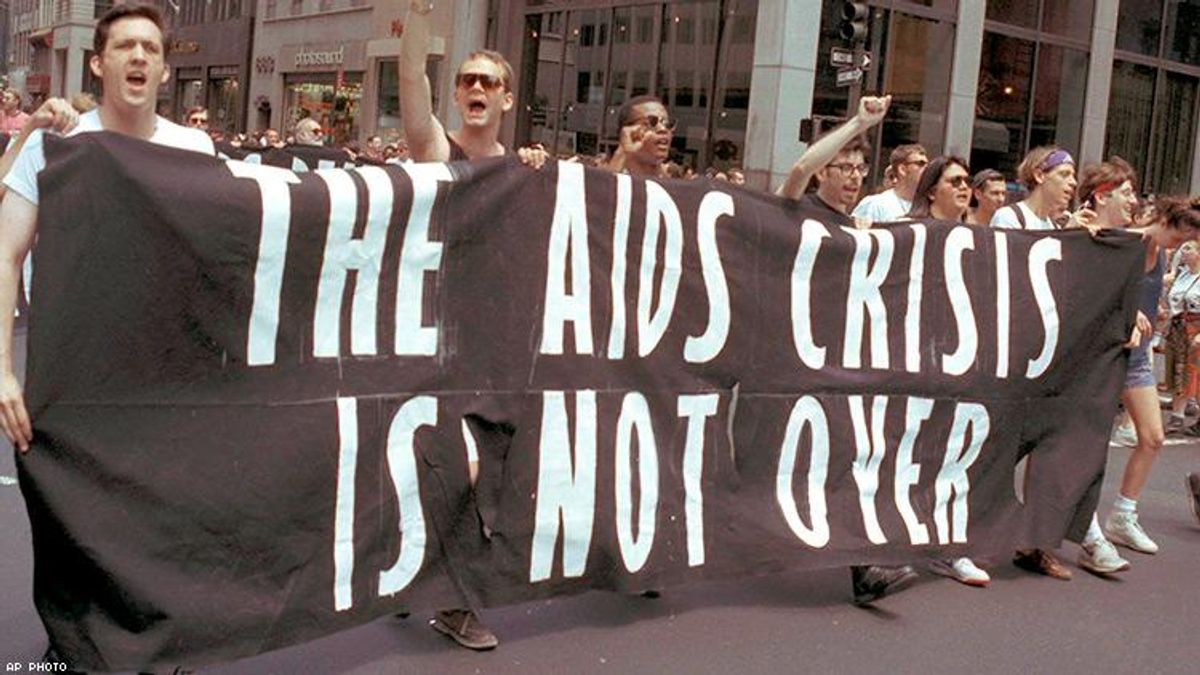I Am a Warrior
AIDS Activism Has Had Positive Effects

Twenty-eight years later, activists recall their time fighting the early AIDS epidemic as the “peak experience of their lives,” despite the burden of trauma.
May 30 2018 10:06 AM EST
By continuing to use our site, you agree to our Privacy Policy and Terms of Use.

Twenty-eight years later, activists recall their time fighting the early AIDS epidemic as the “peak experience of their lives,” despite the burden of trauma.
Is a career in HIV and AIDS activism rewarding? Absolutely, a new study confirms. Although those who are on the frontline of the battle to fight HIV and AIDS are more likely to experience trauma, the vast majority of former AIDS activists describe their time spent in activism as one of the most rewarding periods of their lives.
The new study, published on May 25 in the journal AIDS Research and Treatment attempts to assess the long-term impact of AIDS activism of ACT UP/New York during its peak years between 1987 and 1992. Some may remember “Silence=Death” or “Act Up” T-shirts with the symbolic pink triangle design.
It was during this period that many people were callously evicted, disowned or shunned on religious grounds because of their HIV diagnoses.
Trauma and Growth: Impact of AIDS Activism explores how being exposed to the worst of the AIDS epidemic causes negative side effects such as Post-Traumatic Stress Disorder and also rewarding effects like a sense of accomplishment.
“In the early years of the HIV/AIDS epidemic in the United States, activists played a unique and unprecedented role,” researchers wrote. “Confronting a new, lethal, and highly stigmatized disease, they became caregivers, advocates, ‘citizen scientists,’ and the voice of an outraged community. While the history of organizations such as ACT UP (the AIDS Coalition to Unleash Power) continues to be documented, the long-term psychosocial effects of AIDS activism on activists themselves have yet to be well studied.”
The majority of ACT UP members during the late eighties and early nineties were mostly young gay men and women — but not all of them were exposed to HIV. Some of them just wanted to support an effort that overwhelmingly affected the LGBT community.
The results were enlightening. According to the responses, the positive effects of service eclipsed the psychological trauma that HIV workers and volunteers experienced.
Researchers studied 102 men (40 percent of whom are HIV-positive) and 23 women. Seventeen percent of participants reported current symptoms suggesting PTSD, slightly above the average in general population studies. Depression symptoms were reported by eight percent overall, with higher rates for HIV-positive men. An “enhanced sense of self, belief in change, and empowerment,” however were reported by 93 percent of respondents, independent of PTSD or depression.In a follow-up 28 years later, ACT UP study participants recall their activist days during the AIDS epidemic as the “peak experience of their lives.”
It’s interesting to note that PTSD has only been defined as a disease as early as 1980 — not much earlier than HIV had been identified.
Researchers described AIDS Survivor Syndrome, a form of PTSD that is common in people who survived an abnormally difficult situation. Using algorithms to determine levels of depression and trauma, the weight of psychological problems were reviewed.
With the lack of effective treatment in the early days, many people had to deduce which methods were effective. Some weren’t able to find a way to pay for medication, and others turned to alternative holistic approaches. Nearly 30 years later, long-term HIV survivors generally bond easily together, in a fairly similar manner as war veterans. Both have witnessed death and pain, but have endured.
This study confirms what HIV activist veterans already know—that helping people living with HIV and AIDS is overall, a rewarding experience despite symptoms such as depression or trauma.